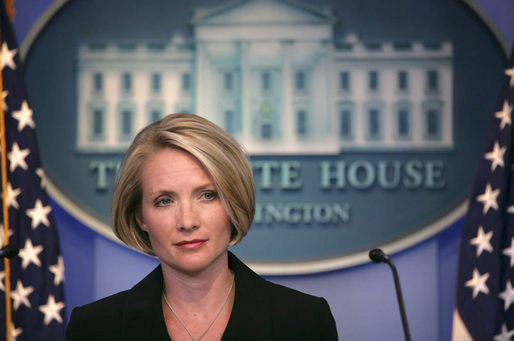
The Worst of the Worst? Del Quinton Wilber tells the story of two of the “worst of the worst,” the Uighur brothers Bahtiyar Mahnut and Arkin Mahmud. Neither brother was affiliated with the Taliban or Al Qaeda or had any reason to bear ill will towards the United States before their long detention. Bahtiyar, the younger brother, recently turned down an offer from the nation of Palau to leave Guantanamo to stay and look after his older brother, who was captured and turned over to the United States only because he went searching for his brother at their parents’ request. Arkin is the only one of the Uighurs not to be invited to Palau because he has developed serious mental health issues while in American custody.
How Things Change. Benoit Denizet-Lewis in the New York Times wrote on Sunday about a new reality that would have been unimaginable even a decade ago – of gay and lesbian middle schoolers coming out. It’s hard to describe how moving the piece was in how it so clearly suggested progress (reporting on the happy side of the news without focusing on the bad.) Slate’s Culture Gabfest followed up with an excellent discussion of the issues suggested by the piece – and even managed to link it to Fox’s new hit Glee. (Relating to the link to Slate’s Culture Gabfest, I must apologize for the lack of a direct one. The podcast doesn’t seem to be posted anywhere that accessible, but if you search for or subscribe to Slate’s iTunes podcast feed, it will be readily accessible.) Relating to Glee and gay youth, I would also recommend this interview of the creator of Glee by Terry Gross.
Gore Vidal. I’m not sure I agree with anything Gore Vidal said in his interview with Tim Teeman for the Times of London, but he proved interesting time and again, speaking of his long series of supportive letters to Timothy McVeigh, his disappointment with Obama, and his conviction that America is “rotting away at a funereal pace” and that a military dictatorship is coming. His opinions carry a unique weight given his proximity to so many centers of power in his time – from presidents to Hollywood to the media, and his series of perspectives on the matter, as historian, intellectual, novelist, activist.
A Hawk versus a Sane Person. Daniel Larison demonstrates once again thatThe American Conservative is one of the few magazines out there providing a coherent conservative worldview instead of mere anti-Obama bile with his post comparing Obama’s and Bush’s foreign policies:
What conservative critics ignore and what Andrew only touches on towards the end is that the Bush administration oversaw setback after failure after defeat for American influence and power. Iran has become a far more influential regional power thanks to the folly of Bush’s invasion of Iraq, democracy fetishists helped to strengthen the hold of Hamas in Gaza to the detriment of Palestinians and Israelis, and Russophobes helped to encourage Saakashvili’s recklessness with talk of NATO membershop and provoked Russian ire with the recognition of Kosovo that led to thede facto permanent partition of an American ally. Hawks have routinely unleashed forces they do not understand, cannot control and are unwilling to contain, and they still have the gall to shout “Appeasement!” when someone else tries to repair some small measure of the damage they have done. Compared to this partial list of Bush’s major failures, Obama has done reasonably well simply by not persisting in some of his predecessor’s errors, but it is far too early to speak of success or payoff and it is a mistake to measure Obama’s success in the way that his supporters wish to do. [my emphasis]
The secret to understanding where so many conservative and right wing publications have failed is their failure to acknowledge – as Jesse Walker of the libertarian Reason magazine does that “Obama is no radical.”
The Dearth of Support for the Very Popular Public Option. Ezra Klein continues his excellent health care blogging with a post describing the problem of the distribution of support for the public option. Klein explains:
It’s not a coincidence that the chamber representing the American people will pass a bill including the public option while the chamber representing American acreage is likely to delete it. The public option has majority support. But a lot of that popularity comes because a lot of people live in liberal centers like California and New York. It actually doesn’t have a majority in Nebraska, where not very many people live, or, I’d guess, in North Dakota, where even fewer people live. In the American political system, it’s not enough to be popular among the voters. You also have to be popular among wide swaths of land. Didn’t you watch “Schoolhouse Rock”?
The political answer this suggests is to allow individual states (or states banding together) to create a public option within their borders – which not coincidentally is exactly where the debate is now headed.
Pax Americana. Michael Lind at Salon describes the end of Pax Americana. Lind gives short shrift however to defenders of American empire – never clearly articulating their point of view as he attempts to debunk it. For a rather effective defense of the alternate point of view, I would look to Niall Ferguson’s excellent Colossus: The Price of America’s Empire. (Ferguson is rather influential among conservative circles, and was one of McCain’s advisors in the 2008 election.)
[Image not subject to copyright.]





